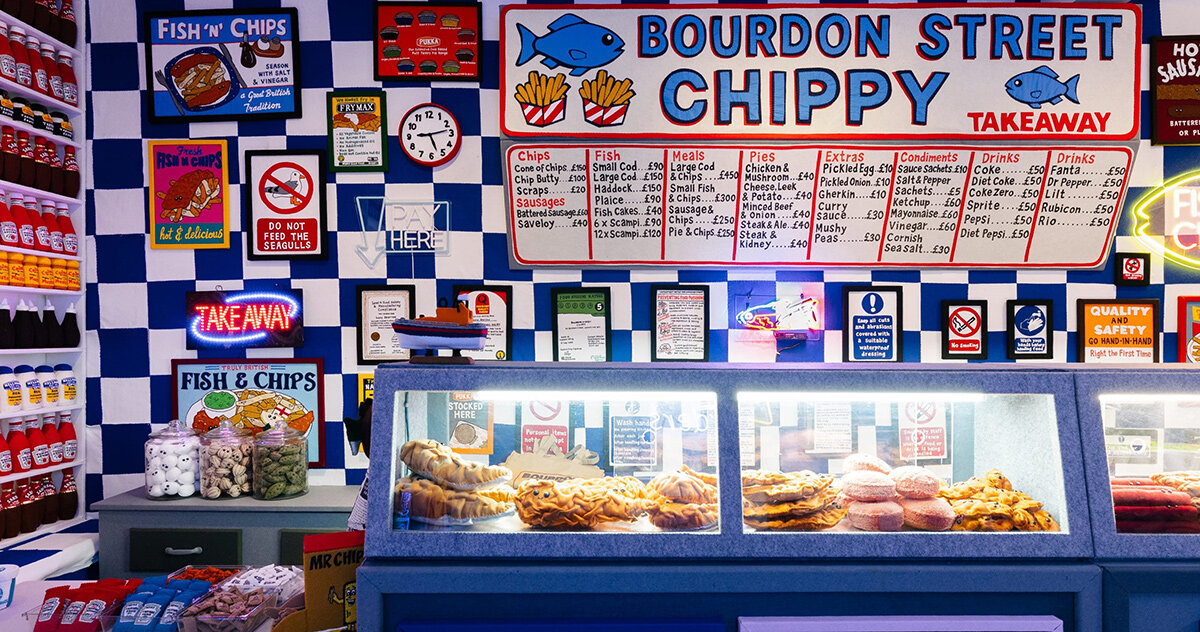a familiar english staple, reimagined in felt
Lucy Sparrow’s latest installation, Bourdon Street Chippy, transforms the Lyndsey Ingram Gallery in London into a fully immersive fish and chip shop rendered entirely in felt. Open through September 14th, 2025, the project continues Sparrow’s exploration of everyday environments through soft sculpture, creating a spatial experience and material presence.
The exhibition occupies the gallery’s rooms with a clear intent to emulate the structure and ambiance of a working chippy. From the banquette seating to the framed portraits on the walls, each element is conceived with a distinct attention to layout and proportion. The familiar counter lends a functional threshold between visitor and vendor, while the seating area encourages visitors to linger, treating the project as both a gallery and social space.
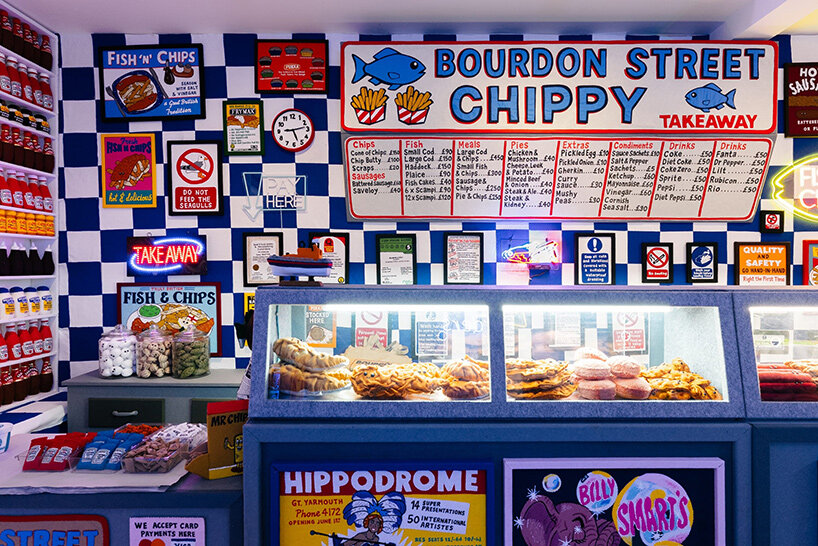
images © Lucy Emms (unless otherwise stated)
lucy sparrow exhibits her command of the material
At the heart of the Bourdon Street Chippy installation is artist Lucy Sparrow’s command of material translation. Over 65,000 hand-crafted felt pieces articulate every surface, container, and consumable object within the chippy. What emerges is a material language that captures the texture of linoleum flooring, the gloss of laminated menus, and the sheen of deep-fried food through stitch and shape. Even the chips, with fifteen distinct cuts in five different tones, are organized with the rigor of typological study.
The spatial layout reflects the hierarchical clarity of a traditional takeaway. Circulation paths are defined by counters, queues, and bench seating, while sightlines are organized around key objects: a felt fryer, hand-sewn condiment dispensers, and signage arranged with unified graphics.

Lucy Sparrow transforms Lyndsey Ingram Gallery into a fully immersive felt fish and chip shop
the interactive bourdon street chippy
Lucy Sparrow herself is present at Bourdon Street Chippy five days a week, reinforcing the installation’s interactivity. Her participation blurs the boundary between artist and vendor, and between object and performance. ‘The familiarity of these spaces disarms the viewer,’ Sparrow explains. ‘It’s a way of getting people to let their guard down.’
The choice of a chippy, as opposed to her previously explored subjects including a supermarket or pharmacy, adds a more intimate layer to the work. ‘My relationship with food has always influenced my art,’ she continues. ‘Over time, I came to understand that my practice had become a way to manage difficult emotions.’ In this sense, Bourdon Street Chippy operates as both a personal artifact and a public setting.
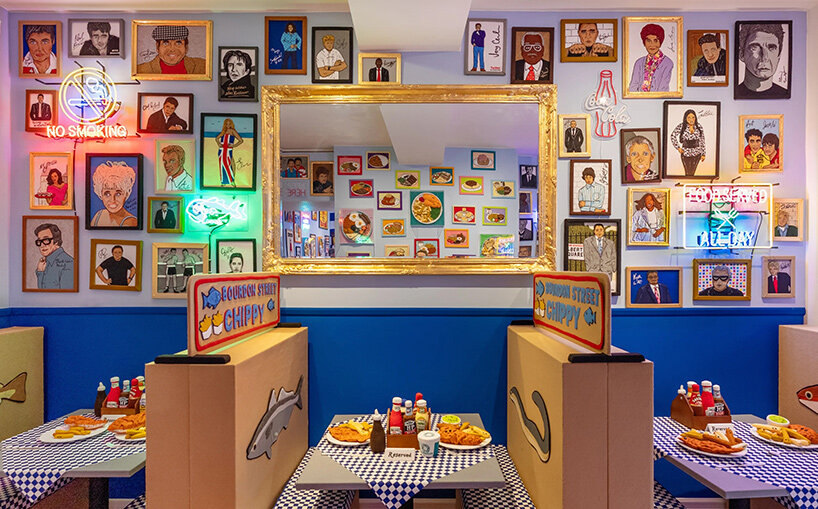
Bourdon Street Chippy recreates a familiar high street space
In bringing a High Street staple into the controlled conditions of a commercial gallery, the installation invites questions about access, nostalgia, and gentrification. The gallery’s polished context contrasts with the working-class origins of the fish and chip shop, yet the installation’s warmth and humor hold space for both critique and affection.
‘Lucy is one of the most important and meaningful artists of her generation,’ says gallerist Lyndsey Ingram. ‘Her work blurs the lines between performance and installation art, all in her distinctive felt language.’ The gallery’s transformation is comprehensive as every surface and volume supports the illusion.
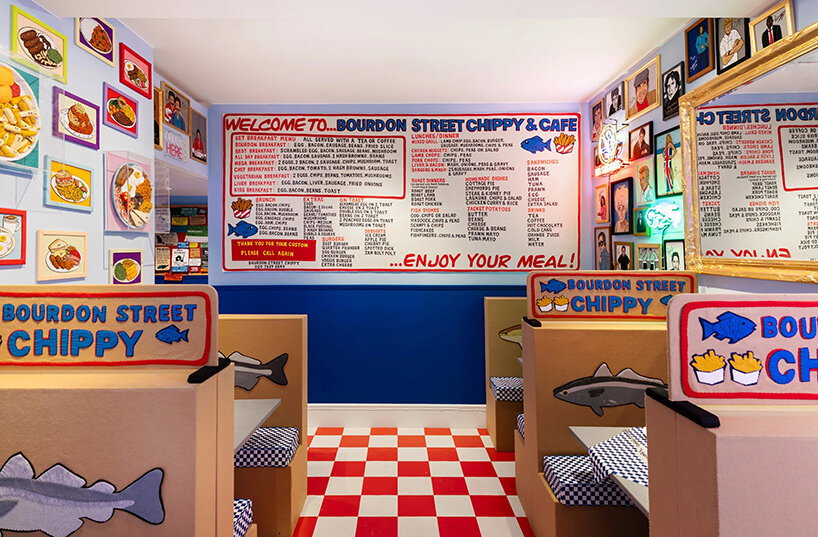
visitors navigate a fabric-rendered takeaway complete with counters banquettes and signage
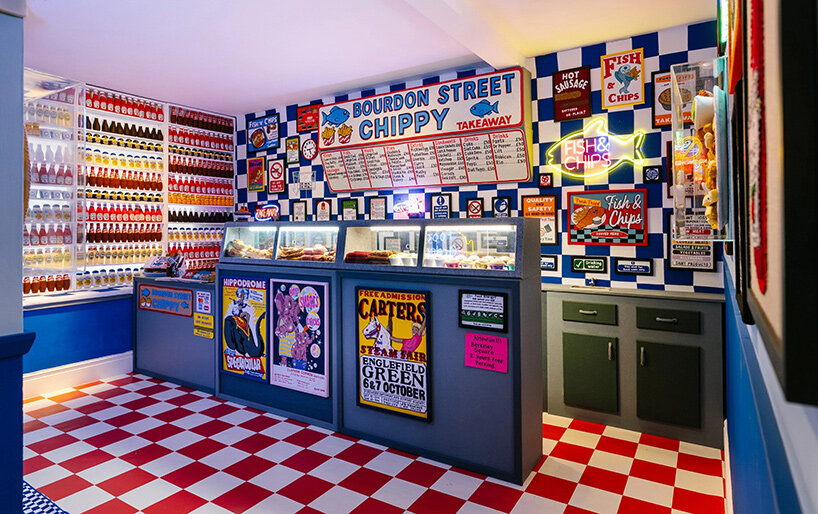
the installation blends sculpture and performance within a curated spatial framework
